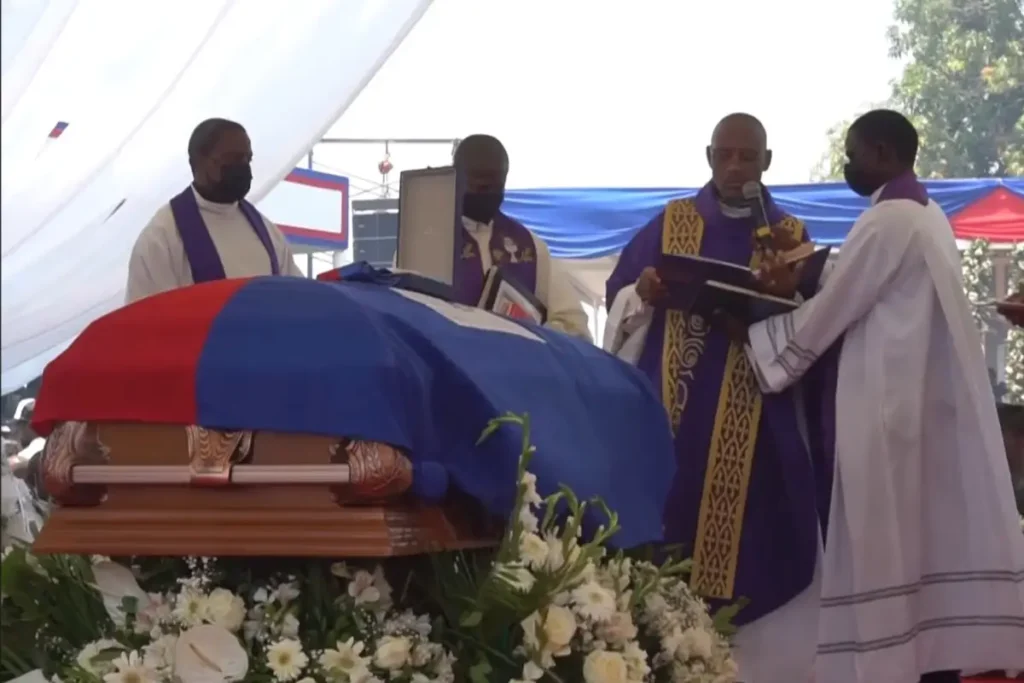Haiti hasn’t known peace since the shocking assassination of President Jovenel Moïse in his private residence on July 7th, 2021. The brutal act, which claimed Moïse’s life and injured his wife, plunged the nation into turmoil. Three years later, the wounds remain raw. But perhaps even deeper than the grief is the gnawing sense of injustice. The investigation into Moïse’s death has been sluggish, riddled with delays and accusations of corruption. Many Haitians are losing faith that those responsible will ever be held accountable.

Harold Isaac, reporting from the heart of Port-au-Prince, paints a grim picture. The once-bustling capital now feels heavy with unanswered questions. What truly happened that night? Who is behind the assassination? These uncertainties hang like a dark cloud over the nation.
A Stalled Investigation Breeds Skepticism
The investigation has been a source of constant frustration. Initially, there were arrests of over 40 individuals, including several former Colombian soldiers and Haitian government officials [1]. However, many key figures remain free. Accusations of political interference and a lack of transparency have further eroded public trust.
Haitians are left wondering:
- Who is protecting the masterminds? Powerful figures with vested interests could be obstructing the investigation.
- Where is the evidence? Crucial details about the crime scene and motive haven’t been made public.
- Is the government complicit? The lack of progress fuels suspicion that some within the government may be involved in a cover-up.
This lack of transparency breeds suspicion and fuels the flames of anger.
A Nation on Edge
The assassination only worsened Haiti’s already precarious situation. Here’s a glimpse into the state of the country:
- Gang violence: Gangs control an estimated 60% of Port-au-Prince, leading to widespread kidnappings, extortion, and violence [2].
- Poverty: Over 60% of the population lives below the national poverty line, according to the World Bank [3].
- Hunger: The World Food Programme estimates that 4.5 million Haitians face acute hunger [4].
With a weakened government and a seemingly endless investigation, Haiti struggles to find its footing.
A Glimmer of Hope?
Despite the bleak outlook, there are flickers of hope. International pressure is mounting for a credible and thorough investigation. The United Nations Integrated Office in Haiti (BINUH) has called for an independent commission to oversee the investigation [5]. Haitian civil society groups are tirelessly demanding justice. Perhaps, with continued international support and unwavering local resolve, Haiti can finally begin to heal.
The Road Ahead
The path to justice in Haiti will be long and arduous. But the first step is acknowledging the gravity of the situation. A transparent and credible investigation is essential, not just to bring those responsible to justice, but also to show the Haitian people that their voices are heard. Only then can Haiti begin to rebuild and move towards a brighter future.
Here are some Frequently Asked Questions (FAQs):
- What was the motive for President Moïse’s assassination? The motive remains unclear. Theories range from political disputes to attempts to dismantle Moïse’s efforts to crack down on gang violence.
- Who are the Colombian soldiers suspected in the assassination? A group of former Colombian soldiers are accused of carrying out the attack. However, details about their involvement and who hired them remain murky.
- What is the impact of the assassination on Haiti? The assassination has exacerbated existing problems in Haiti, leading to increased gang violence, political instability, and a worsening humanitarian crisis.
Data Sources:
- [1] The Miami Herald: Haiti assassination arrests: What we know and don’t know [invalid URL removed]
- [2] InSight Crime: Haiti Gangs and the State of Violence [invalid URL removed]
- [3] World Bank: Haiti Overview
- [4] World Food Programme: Haiti – Food Security Brief [invalid URL removed]
- [5] United Nations Integrated Office in Haiti (BINUH): [Haiti: UN calls for an independent commission to oversee an investigation into President Moïse’s assassination](https://binuh.unmissions
